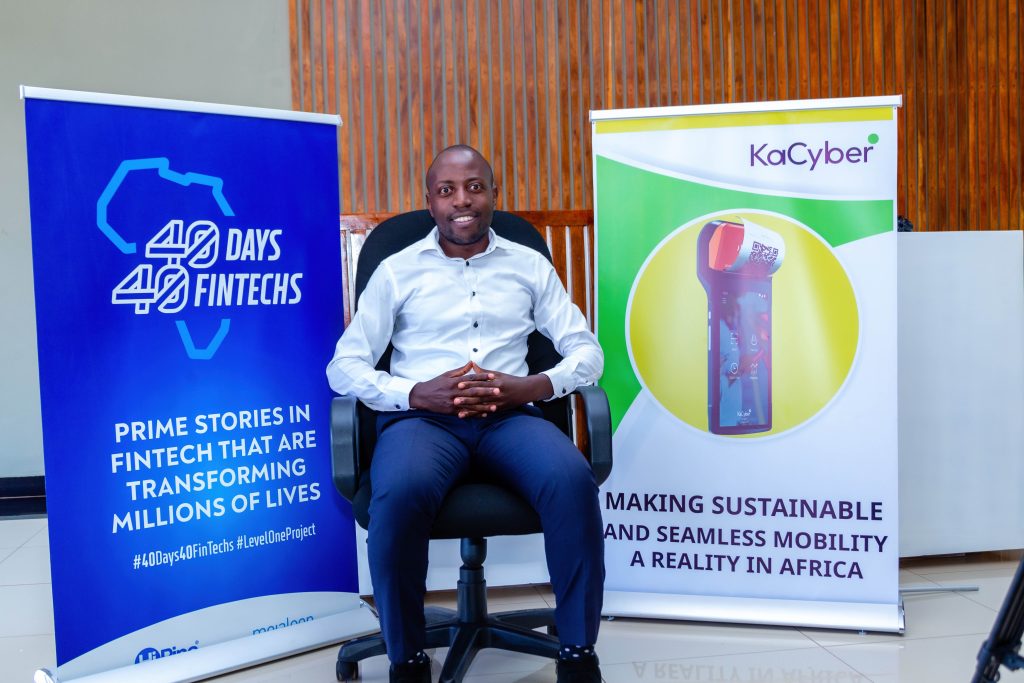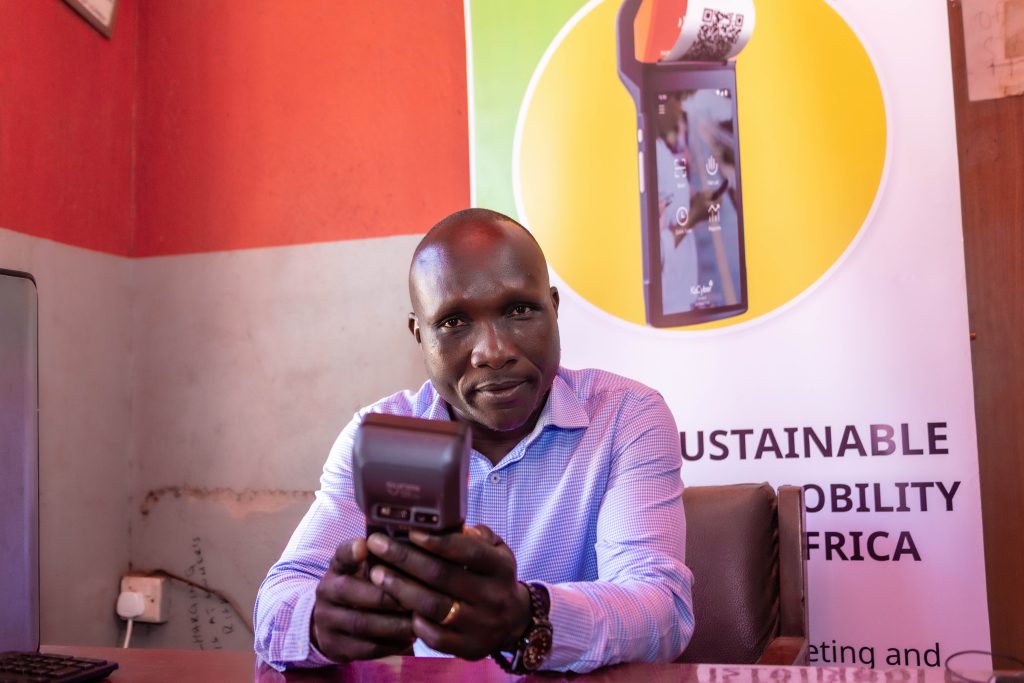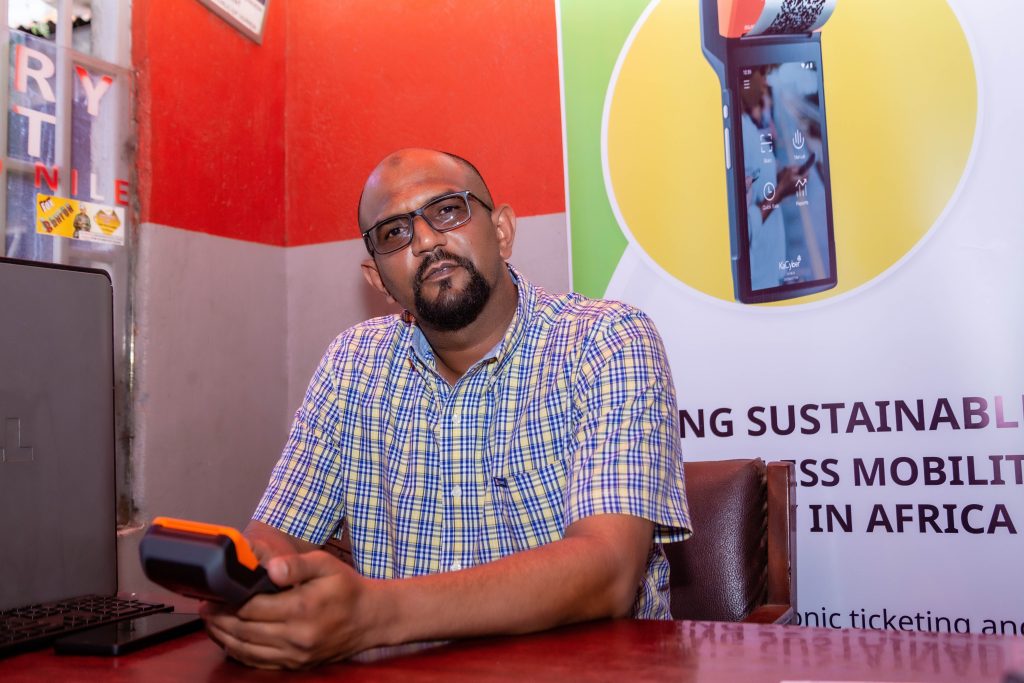
Public transport operators in Uganda struggle to balance books because of the disorganization in this sector. There is no clear monitoring of either taxi conductors, bus, or train wardens. In the end, the business owners are affected by accountability issues which leads to losses in terms of ticketing collections.
Even on the side of passengers, it is very hard, especially for the bus sector for people to find out how to easily book and pay for tickets.
It is this hustle that KaCyber, a transport technology company, was designed to solve through digital ticketing and payment systems for buses, trains, and ferries.
Launched in 2019, KaCyber offers a robust digital ticketing and payment platform for the public transport sector that runs on mobile and desktop computers. To date, they have processed more than 11 million tickets across buses and trains in Uganda.
Innocent Orikiiriza, the founder and CEO of KaCyber, says that transport operators are provided with ticketing gadgets that run an Application that transport operators use to issue tickets to travellers and also monitor sales for those who book online.

“We are following the trends and payment technology advancements. The system we developed mutually supports online and offline modes. In offline mode, the POS machine that we provide has been integrated to support payment by cash, mobile money, and pre-paid cards,” he says.
“At the moment, we have different numbers that we measure and the 11 million tickets are worth Shs 200bn. This is the transaction value that we have managed to collect using our system with transport operator partners,” he says, noting that they plan to introduce infrastructure that would allow clients to be able to offer multi-booking services.
And transport operators are impressed with the service.
“This is a good venture and makes work easier because even if I am not in the office, I can assess the returns, and check their reports without any problem,” says Gaddafi Muki, the Manager of Nile Coaches, Kampala Branch.

Slow adoption.
Orikiiriza says that just like other sectors, operators in the transport sector are still stuck in the traditional way of doing things, which is slowing the adoption of digital services.
“Public transport is heavily informal and everyone has their way on how things move. We find it challenging to convince transport operators that they can adopt a full digital solution to provide E-ticketing services,” he says.
This is evident in the way transport operators are complaining about the many features that were added such as IDs, destination, starting journey, and next of kin.
“Initially, we used to do only the names and telephone numbers of customers. They have now added features of occupation, NIN, and signatures, which is a waste of time on a bus. KaCyber should not add more features because we are businessmen who must work fast with passengers. When you keep filling in many things, it wastes time,” says one bus operator.

Orikiiriza is however grateful to the 40 Days 40 FinTechs initiative that has improved the visibility of start-ups such as KaCyber and improved stakeholder engagement through activities that bring together all the key players.
KaCyber Technologies is the nineteenth participant in the 2023 40 Days 40 FinTechs initiative.
Now in the fourth season, HiPipo’s 40 Days 40 FinTechs initiative has become a household name in the financial technology space of the East African region. In the last three editions, more than 100 FinTechs have been showcased, highlighting stories changing people’s lives, especially in the under-served sectors.
HiPipo CEO Innocent Kawooya appreciated the impact created by the likes of KaCyber by easing the booking of travel tickets because this is in line with the principle of including everyone.
“This year our main focus is the impact of these initiatives on the people at the bottom of the pyramid. We are pleased with the success stories in the transport sector where people are beginning to appreciate e-ticketing for the smooth running of the business,” Kawooya said.
The 40 Days 40 FinTechs initiative is run by HiPipo in partnership with the Level One Project, Mojaloop Foundation, INFITX, Cyberplc Academy, Crosslake Technologies, and Ideation Corner with generous support from the Bill and Melinda Gates Foundation.